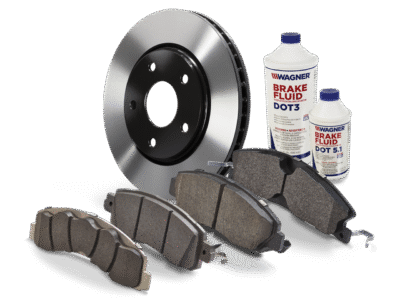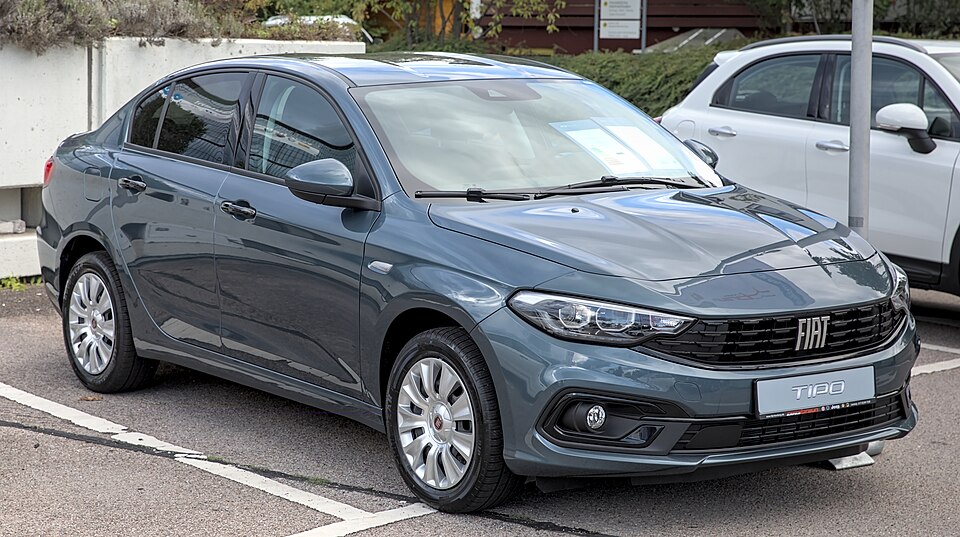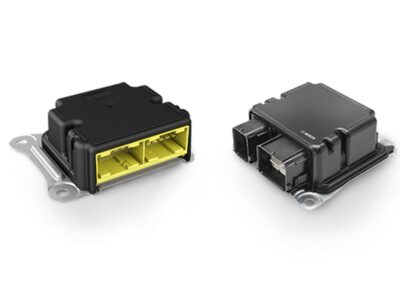
Preventing Engine Power Loss in Your Fiat Tipo

The Fiat Tipo is a reliable and efficient vehicle, but like any car, it can be prone to engine power loss if not properly maintained. Engine power loss can be a frustrating and potentially hazardous issue, causing reduced performance and decreased responsiveness. Regular maintenance and prompt attention to any issues are crucial to preventing engine power loss in your Fiat Tipo. By understanding the common causes of engine power loss and taking proactive steps, you can help ensure your vehicle continues to run smoothly and efficiently, maintaining its performance and overall reliability.
Understanding the Causes of Engine Power Loss in Your Fiat Tipo
Engine power loss in your Fiat Tipo can be a concerning issue, potentially leading to decreased performance and increased risk of accidents. To address this problem effectively, it's crucial to understand its underlying causes. Various factors can contribute to engine power loss, including issues with the fuel system, ignition system, and engine mechanical components. Identifying the root cause is essential for applying the correct fix and preventing future occurrences.
Fuel System Issues
Fuel system issues are a common cause of engine power loss in the Fiat Tipo. Problems such as clogged fuel filters, faulty fuel injectors, or a malfunctioning fuel pump can restrict fuel flow to the engine, leading to a decrease in power. Regular maintenance, such as replacing the fuel filter at the recommended intervals and using high-quality fuel, can help prevent these issues. Additionally, having the fuel injectors cleaned or replaced as needed can ensure that the engine receives the fuel it requires to operate efficiently.
Ignition System Problems
The ignition system is another critical area that can cause engine power loss if it malfunctions. Worn-out spark plugs, a faulty ignition coil, or issues with the ignition timing can all lead to reduced engine performance. Ensuring that spark plugs are replaced at the recommended mileage and checking the ignition coil for any signs of wear or damage can help mitigate these problems. Furthermore, having the ignition timing checked and adjusted by a professional mechanic can prevent power loss due to ignition-related issues.
Engine Mechanical Issues
Engine mechanical problems, such as low compression in one or more cylinders, can also result in power loss. This could be due to worn piston rings, damaged cylinder walls, or issues with the valves. Regular engine maintenance, including oil changes and checking for any signs of engine wear, is vital. In cases where engine mechanical issues are suspected, a compression test can help diagnose the problem, allowing for targeted repairs to restore engine power.
| Issue | Cause | Prevention/Maintenance |
|---|---|---|
| Fuel System Issues | Clogged fuel filters, faulty fuel injectors, malfunctioning fuel pump | Regularly replace fuel filter, use high-quality fuel, clean or replace fuel injectors as needed |
| Ignition System Problems | Worn-out spark plugs, faulty ignition coil, ignition timing issues | Replace spark plugs at recommended intervals, check ignition coil for wear, adjust ignition timing as necessary |
| Engine Mechanical Issues | Low compression due to worn piston rings, damaged cylinder walls, or valve issues | Regular engine maintenance (oil changes), perform compression test to diagnose issues |
How do you fix engine power loss?

To fix engine power loss, it's essential to identify the underlying cause of the problem. Engine power loss can be due to various reasons such as faulty fuel injectors, clogged air filters, or worn-out spark plugs. A thorough diagnosis is necessary to determine the root cause of the issue. This can be done by using a scan tool to check for any trouble codes stored in the engine control module (ECM). The ECM can provide valuable information about the engine's performance and help pinpoint the source of the problem.
Common Causes of Engine Power Loss
Engine power loss can be attributed to several factors. Some of the most common causes include issues with the fuel system, ignition system, or air intake system. When the fuel system is not functioning correctly, it can lead to a decrease in engine power. Similarly, problems with the ignition system, such as worn-out spark plugs, can also cause engine power loss.
- Faulty fuel injectors or clogged fuel filters can disrupt the fuel supply to the engine.
- Worn-out spark plugs or ignition coils can prevent the engine from running efficiently.
- A clogged air filter or mass airflow sensor can reduce the amount of air entering the engine.
Diagnostic Steps for Engine Power Loss
To diagnose engine power loss, a systematic approach is necessary. The first step is to check the basics, such as the air filter and spark plugs. If these are found to be in good condition, further investigation is required. This may involve using a scan tool to monitor the engine's performance and check for any trouble codes.
You may be interested in reading How to Fix Fiat Tipo Braking Issues: A Step-by-Step Guide
How to Fix Fiat Tipo Braking Issues: A Step-by-Step Guide- Check the air filter and replace it if it's clogged or dirty.
- Use a scan tool to check for any trouble codes stored in the ECM.
- Perform a compression test to identify any internal engine issues.
Repairing Engine Power Loss
Once the cause of the engine power loss has been identified, the necessary repairs can be carried out. This may involve replacing faulty components, cleaning clogged systems, or adjusting engine settings. It's essential to follow the manufacturer's guidelines and recommendations when performing repairs.
- Replace faulty fuel injectors or spark plugs as needed.
- Clean or replace clogged air filters or fuel filters.
- Adjust engine settings, such as the idle mixture or ignition timing, according to the manufacturer's specifications.
How long will a Fiat Tipo last?

The Fiat Tipo is a compact car produced by the Italian manufacturer Fiat since 2015. Its longevity depends on various factors, including maintenance, driving conditions, and model year improvements. Generally, a well-maintained Fiat Tipo can last for a considerable amount of time.
Reliability Factors
The reliability of the Fiat Tipo is influenced by several key factors. These include the quality of manufacturing, the materials used, and how well the vehicle is maintained over its lifespan. Regular servicing and addressing issues promptly can significantly impact the car's durability.
- Regular maintenance is crucial, including oil changes and tire rotations.
- The quality of replacement parts can affect the vehicle's overall reliability.
- Driving habits, such as aggressive driving, can reduce the car's lifespan.
Common Issues
Some model years of the Fiat Tipo have been associated with specific issues that could impact their longevity. For instance, early models had some reliability concerns. Understanding these issues can help potential owners make informed decisions.
- Some owners have reported issues with the infotainment system.
- There have been complaints about the quality of certain interior components.
- Engine and transmission problems have been noted in some cases, though these are not universal.
Maintenance and Longevity
Proper and regular maintenance is key to extending the life of a Fiat Tipo. By following the recommended maintenance schedule and addressing any issues promptly, owners can help ensure their vehicle lasts as long as possible.
- Following the manufacturer's maintenance schedule is essential.
- Using high-quality replacement parts can make a difference.
- Keeping records of maintenance can help in tracking the vehicle's condition.
What happens when your engine loses power?

When your engine loses power, it can be a concerning and potentially hazardous situation. The engine is the heart of your vehicle, and a loss of power can affect its overall performance and ability to operate safely. There are several reasons why an engine may lose power, including issues with the fuel system, ignition system, or mechanical problems.
Causes of Engine Power Loss
The causes of engine power loss can be diverse and complex. Some of the most common causes include faulty fuel injectors, clogged air filters, or issues with the spark plugs. These problems can lead to a decrease in engine performance, resulting in a loss of power.
You may be interested in reading How to Fix Fiat Tipo Braking Issues: A Step-by-Step Guide
How to Fix Fiat Tipo Braking Issues: A Step-by-Step Guide Troubleshooting Fiat Tipo Suspension Failures
Troubleshooting Fiat Tipo Suspension Failures- Faulty or clogged fuel injectors can prevent the proper amount of fuel from being delivered to the engine, resulting in a loss of power.
- A clogged air filter can restrict airflow to the engine, causing a decrease in performance and power.
- Issues with the spark plugs, such as wear or fouling, can prevent the engine from running efficiently, leading to a loss of power.
Symptoms of Engine Power Loss
When an engine loses power, it can manifest in various ways. Some common symptoms include a decrease in acceleration, a rough or uneven idle, or difficulty climbing steep inclines. These symptoms can be intermittent or persistent, depending on the underlying cause.
- A decrease in acceleration can be a noticeable symptom of engine power loss, making it difficult to merge with traffic or climb steep hills.
- A rough or uneven idle can be a sign of engine power loss, causing the vehicle to vibrate or shake.
- Difficulty climbing steep inclines can be a symptom of engine power loss, making it challenging to drive in hilly or mountainous terrain.
Diagnosing Engine Power Loss
Diagnosing the cause of engine power loss requires a systematic approach. It involves checking the basics, such as the fuel level and air filter, and then proceeding to more complex tests, such as compression tests or fuel pressure tests.
- Checking the basics, such as the fuel level and air filter, can help identify simple causes of engine power loss.
- Performing compression tests or fuel pressure tests can help identify more complex issues, such as internal engine problems or fuel system issues.
- Using specialized tools, such as scan tools or oscilloscopes, can help diagnose issues with the engine's ignition or fuel systems.
Is the Fiat Tipo discontinued?

The Fiat Tipo was a compact car produced by the Italian manufacturer Fiat. The production of the Fiat Tipo started in 2015 as a replacement for the Fiat Linea and Fiat Bravo. However, in recent years, the sales of the Fiat Tipo have declined significantly.
Fiat Tipo Production Status
The production status of the Fiat Tipo varies depending on the market. In some countries, the car is still available for purchase, while in others, it has been discontinued. The availability of the Fiat Tipo also depends on the body style, with some variants being more readily available than others.
- The Fiat Tipo sedan is still available in some markets, such as Turkey and Eastern Europe.
- The hatchback version of the Fiat Tipo has been discontinued in many countries due to low sales.
- The station wagon variant is still available in some markets, although its popularity has declined in recent years.
Reasons for Declining Sales
The decline in sales of the Fiat Tipo can be attributed to several factors. One of the main reasons is the increasing competition in the compact car segment. The market has become increasingly crowded, with many manufacturers offering a range of models that compete with the Fiat Tipo. Additionally, the Fiat Tipo has not undergone significant updates in recent years, which has made it less competitive.
- The compact car segment has become increasingly competitive, with many manufacturers offering a range of models.
- The Fiat Tipo has not undergone significant updates in recent years, making it less competitive.
- The car's design and features have not been well received by consumers in some markets.
Future Plans for the Fiat Tipo
There have been reports that Fiat may discontinue the Tipo in some markets due to low sales. However, the company has not made any official announcements regarding the future of the model. It is likely that the Fiat Tipo will continue to be available in some markets, although its availability may be limited.
- Fiat may discontinue the Tipo in some markets due to low sales.
- The company has not made any official announcements regarding the future of the model.
- The Fiat Tipo may continue to be available in some markets, although its availability may be limited.
Frequently Asked Questions
What are the common causes of engine power loss in Fiat Tipo?
Engine power loss in Fiat Tipo can be caused by faulty fuel injectors, clogged air filters, or malfunctioning spark plugs. Issues with the turbocharger, such as worn-out bearings or damaged compressor wheels, can also lead to power loss. Additionally, problems with the engine's computer system or faulty sensors can disrupt engine performance, resulting in reduced power output.
How can I prevent engine power loss in my Fiat Tipo?
Regular maintenance is key to preventing engine power loss. This includes changing the oil regularly, replacing air filters, and checking spark plugs for wear. It's also essential to inspect the fuel injectors and turbocharger for any signs of damage or malfunction. Using high-quality fuel and avoiding extreme driving conditions can also help to maintain engine performance and prevent power loss.
You may be interested in reading How to Fix Fiat Tipo Braking Issues: A Step-by-Step Guide
How to Fix Fiat Tipo Braking Issues: A Step-by-Step Guide Troubleshooting Fiat Tipo Suspension Failures
Troubleshooting Fiat Tipo Suspension Failures Resolving Electrical Problems in the Fiat Tipo
Resolving Electrical Problems in the Fiat TipoCan a faulty oxygen sensor cause engine power loss in Fiat Tipo?
A faulty oxygen sensor can indeed cause engine power loss in Fiat Tipo. The oxygen sensor plays a crucial role in monitoring the air-fuel mixture, and a malfunctioning sensor can lead to an incorrect mixture, resulting in reduced engine performance. If the oxygen sensor is faulty, it can cause the engine to run rich or lean, leading to a decrease in power output and potentially causing damage to other engine components.
Using premium fuel is not necessarily required to prevent engine power loss in Fiat Tipo, but using high-quality fuel that meets the manufacturer's specifications is recommended. Lower-octane fuel can cause engine knock or pinging, which can lead to reduced performance and potentially damage the engine over time. However, using premium fuel will not provide significant benefits if the engine is properly maintained and running on standard fuel.

If you want to know other articles similar to Preventing Engine Power Loss in Your Fiat Tipo you can visit the category Fiat Tipo.
Leave a Reply






More content of your interest